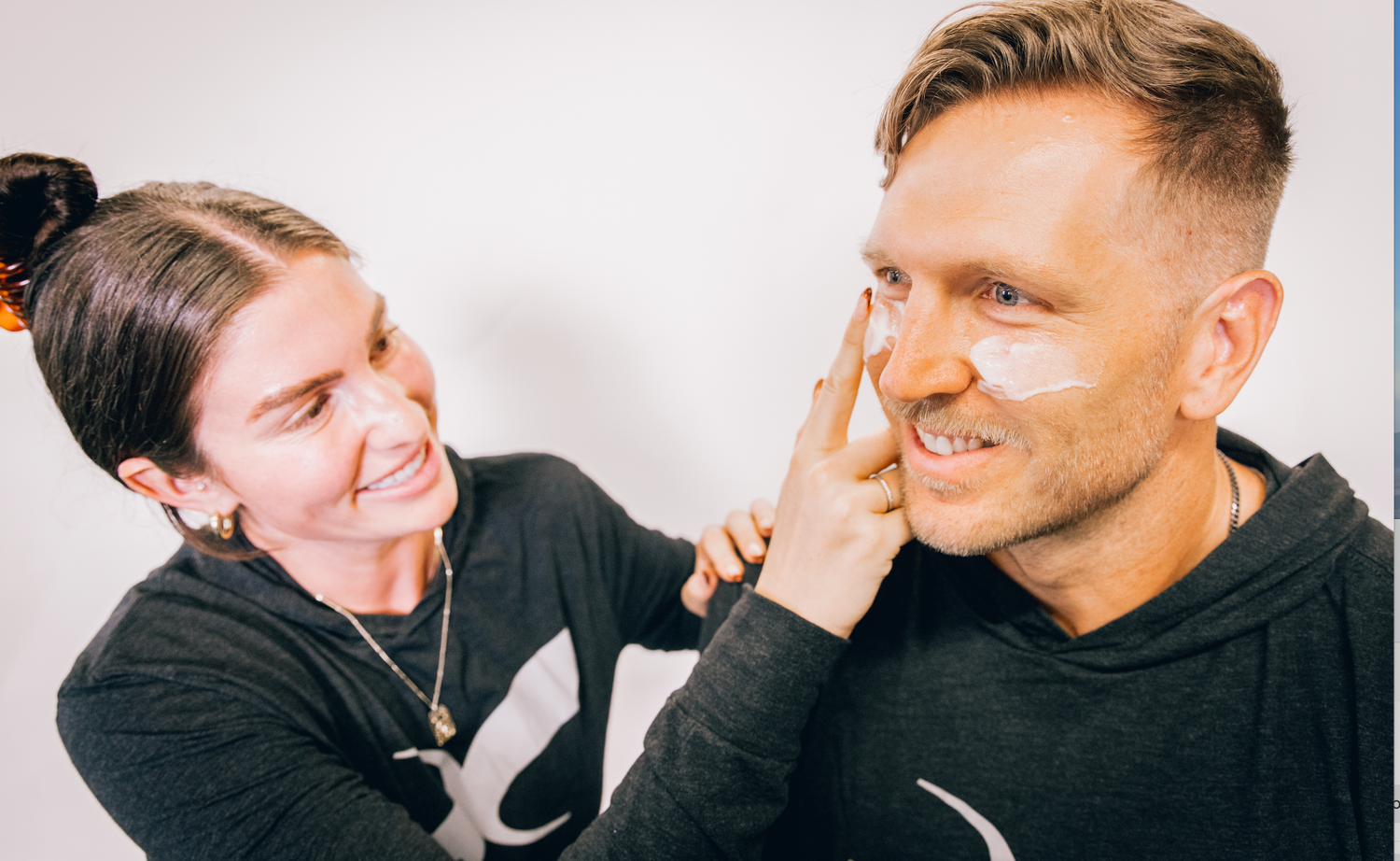Gender Neutral Skincare: Unisex Options
Gender neutral skincare should be more prevalent, but no thanks to effective marketing, there is a divide between "his and hers" skincare products. Skincare products targeted towards women generally come in bright packaging. In contrast, men's products usually have a more toned-down, masculine packaging.
But does it really matter? Can couples share their skincare routine? Skincare products don't necessarily need to be gendered. Read on to learn more about unisex skincare and why genderless skincare works!
5 Reasons Unisex Skincare Works
Check out these reasons why unisex skincare products can be used by any gender and consider that the next time you pick up a product off the shelf.
1. Biological Differences Exists But Are Minimal
Those who traditionally market skincare products argue that men and women have many biological differences that set the two apart, including the biology of their skin. Men's and women's skin are different.
For one, men's skin has more collagen, has sebaceous glands, and they tend to shave more. This makes them more prone to acne and in-grown hair follicles. On the other hand, women have thinner skin, less collagen production, and less moisture retention.
While these differences may seem significant in choosing skincare products, the truth is they're not. The differences are quite minimal, and the formulation of each non gender specific skincare product won't matter too much, given the right skincare regimen.
2. Skincare Products Target Individual Concerns
If you're wondering why skin composition doesn't matter much in skincare, here's your answer. Whether marketed for men or women, skincare products work by targeting individual concerns.
When developing skincare products, brands usually consider the skin concerns their products need to target. When pinpointing these skin concerns, they target the once women often experience. However, skin issues are usually not exclusive to only women.
Whether you're a man or woman, you can experience dry skin, oily skin, irritation, sensitivity, and signs of aging. Using a product marketed towards the other gender doesn't render it useless when you use it.
For example, some cleansers are targeted at men, usually formulated to control sebum overproduction on the skin. While it answers a concern that is more frequent among males, women can still have the same problem.
At the same time, if a woman with oily skin uses it, the cleanser won't necessarily be ineffective just because she's not the target gender.
3. Skincare Regimens Don't Revolve Around Gender
This next reason is related to the previous one. Given that skincare products primarily target individual concerns, your skincare regimen should aim to address your own skin issues.
An effective skincare regimen is gender-neutral. When building your skincare routine, you don't need to consider your biological gender. Instead, focus on what your skin needs.
When choosing the best unisex skincare products to use, these are the factors you need to consider:
- Skin type: There are four common skin types that you may fall under. These include normal, oily, dry, and combination skin. Normal skin enjoys a moisture balance, making it the easiest to take care of. Oily skin is the type that tends to produce more sebum; dry skin is the opposite, as it doesn't get enough moisture. Lastly, those with the combination skin type usually have an oily T-zone while the rest of their face remains dry.
- Skin Concerns: When making your skincare routine, you need to narrow down the skin issues you're experiencing. Do you have problems with flaky skin? Do you want help with fading hyperpigmentation? Is your skin easily irritated? Knowing the skin concerns, you want a solution to help narrow down the product lineup you'll need for your routine.
- Skincare Ingredients: Now that you know your skin type and the issues you want to be addressed, you need to look at the products' ingredients. Some ingredients work well with certain types and for specific concerns; simultaneously, they can worsen others.
Some unisex skin care products also sneak in substances that may be harmful in the long run, such as parabens and synthetic fragrances. Given this, reading the products' labels is always a good habit to have when it comes to skincare.
4. It's More Budget-Friendly
Have you ever wondered whether you can share your skincare products with your significant other? With unisex skincare, the answer is: yes.
If you and your partner have similar concerns and can use the same product without any adverse effects, feel free. Not only will you have to find the time to figure out what "gender-equivalent" product you'd have to buy, but you can also save money by sharing.
5. It Promotes Accessibility and Removes Stigma
While there is progress regarding gender equality in many aspects, the stigma around skincare is still around. With this comes the accessibility issues that stem from this perspective.
Traditionally, many would consider skincare as a woman's concern. In fact, according to an AcuPoll survey done back in 2020, 63% of male respondents said they don't use face wash, and 11% never tried skincare at all. According to the poll, the respondents perceive skincare as "feminine."
However, this shouldn't be the case. Skincare is a human concern, and everyone needs to take care of their skin, whether it's for aesthetic purposes or one's overall health.
With unisex skincare, this stigma, and with it accessibility issues, can be removed. Your gender shouldn't stop you from taking care of your skin in the first place.
Skincare Is Genderless
Taking care of your body, your skin included, doesn't need to be gendered. The skin is a part of the human body. While there are differences between men and women biologically, the disparity is insignificant when finding a product that works.
There are many benefits to unisex skincare, or at the very least, considering skincare as genderless skincare. In the first place, skincare's primary concern is helping alleviate skin issues and keeping the skin healthy. Gender has nothing to do with this.
With all its benefits - for your skin and your pockets - why not try out unisex skincare today?









Leave a comment
This site is protected by hCaptcha and the hCaptcha Privacy Policy and Terms of Service apply.